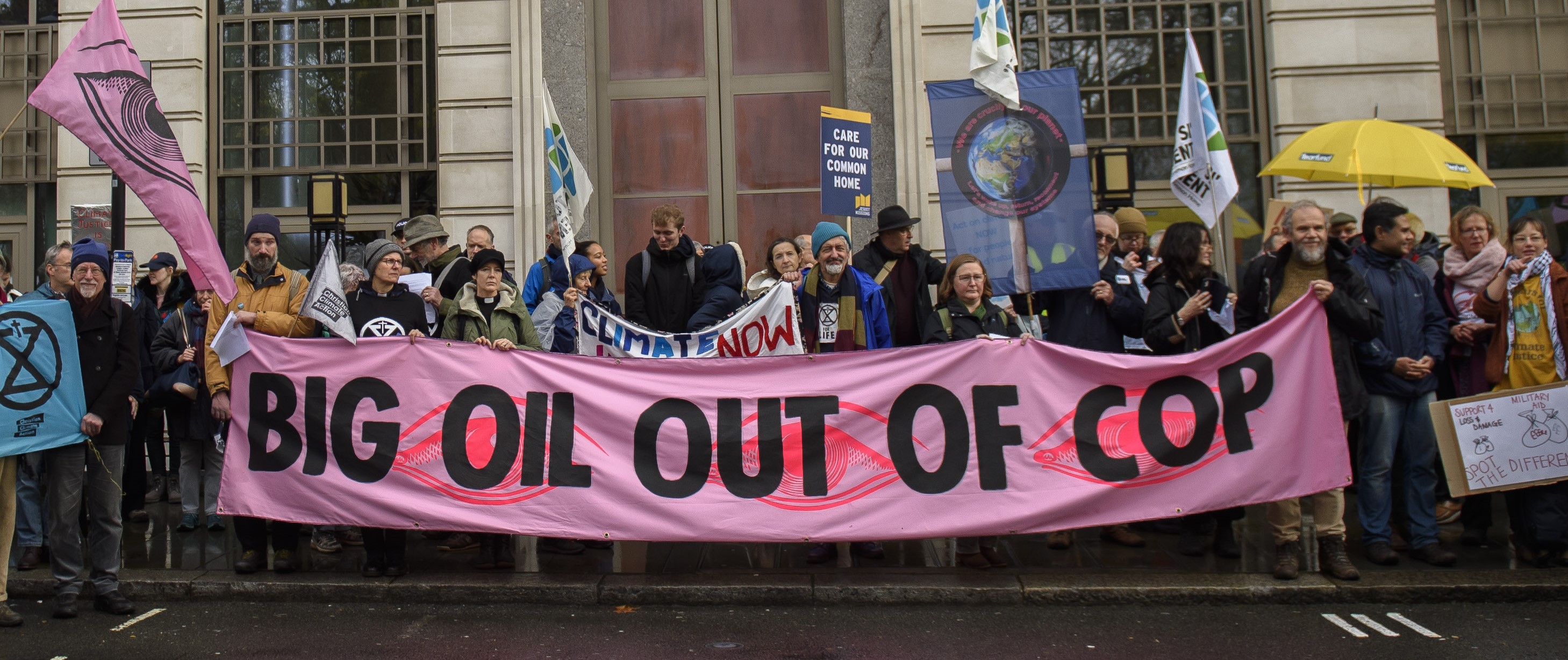The annual UN climate summit, COP28, arrives as 2023 is set to be announced the hottest year the planet has ever experienced. Accumulated heat in the oceans and on land has driven a series of climate disasters and the urgency of the crisis has never been greater - but still the fossil fuel industry is determined to block action.
COP28 is hosted by the United Arab Emirates. The COP President, Sultan Al Jaber, is CEO of the Abu Dhabi National Oil Company, planning a massive expansion of its own oil and gas production (the biggest expansion of any single company), and UAE is reportedly planning to use the summit as an opportunity to strike oil and gas deals. COP28 will see record numbers of fossil fuel lobbyists, as well as representatives of other polluting industries - and of course government delegations who are closely linked to vested interests. Greenwash measures such as carbon capture and storage are expected to be heavily pushed.
The UAE also has a dismal human rights record with concerns about the impact of mass surveillance and repression on climate activism at COP28.
No prizes for UK
The UK government is deliberately blocking the path to a green transition, intending to grant over 100 new oil and gas licenses and giving consent for the massive Rosebank oil field which would generate more CO2 emissions in total than the 28 lowest-income countries do in a year.
Rishi Sunak even boasted in his speech at COP28, “We’ve scrapped plans on heat pumps and energy efficiency, which would have cost families thousands of pounds,” showing a remarkable lack of shame about his backtracking and his ignorance that these measures are essential to actually cut energy bills.
Climate finance for climate justice
Last year’s COP27 saw a crucial victory for countries on the frontline of climate breakdown. After decades of blocking by rich nations, a Loss and Damage Fund was finally agreed for countries most affected by climate change to cover devastating impacts like flooding and drought. The fund was formally set up at the start of COP28. For the first four years it will be hosted by the World Bank, a temporary arrangement reached in negotiations against the wishes of countries in the Global South who wanted an independent body to control the fund under the UN. The World Bank model is based on loans not grants, and is not set up to allow rapid access to funds after climate disasters. They also fear the dominance of the US over World Bank decision-making.
The history of climate finance has not encouraged trust. In 2009 in Copenhagen, rich nations pledged to provide US$100 billion a year to less wealthy nations by 2020, to help them adapt to climate change and develop sustainably. That target was not met in 2020. It was claimed to have been reached in 2023. However, analysis by Oxfam found that the majority of climate finance was in the form of loans to be repaid. Project funding which was not genuinely climate-related was also included - leaving the real value of funding just a fraction of the claimed total.
Take action
Communities and activists around the world will take to the streets on 9 December for the Global Day of Action. You can find events near you here.
Read more
COP28 Coalition global demands for climate justice based on human rights.
Follow updates on COP28 via CarbonBrief




